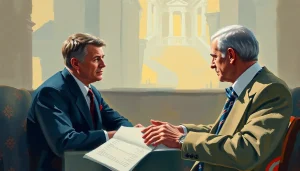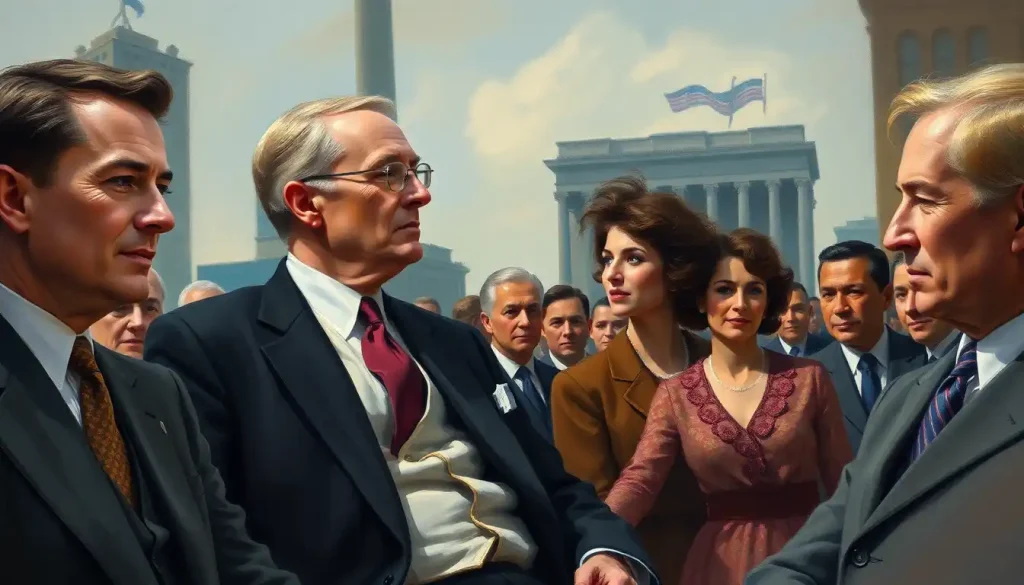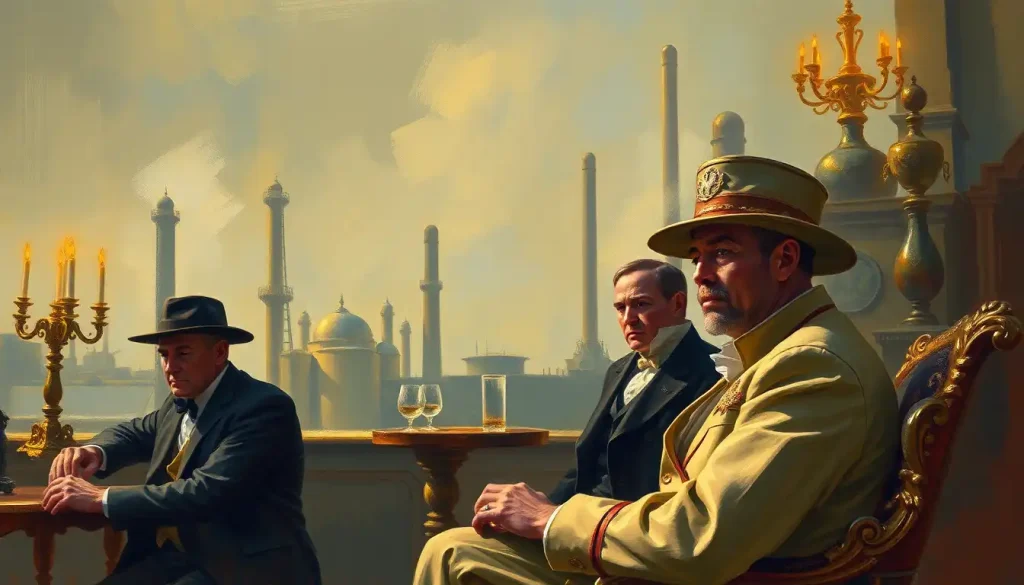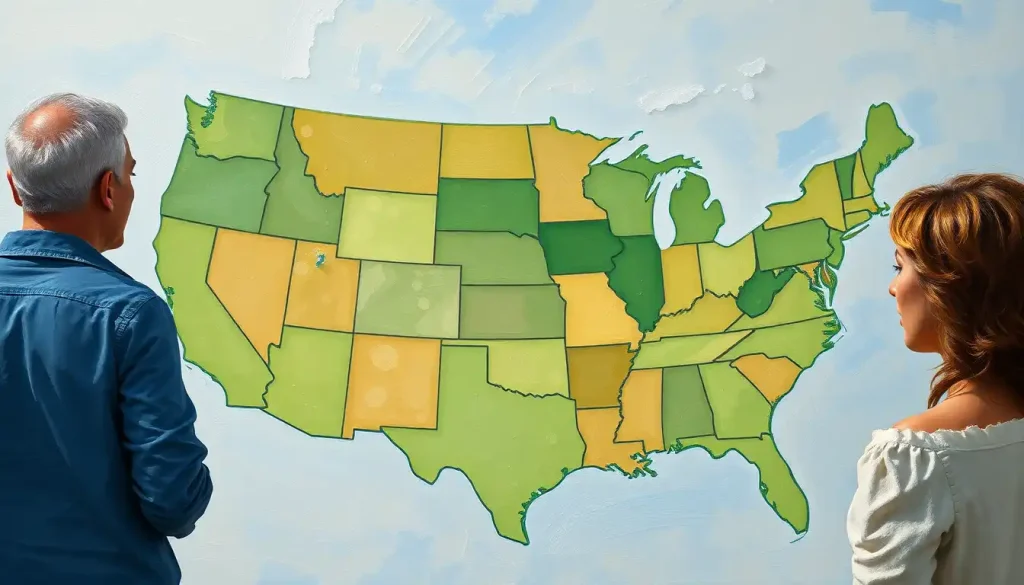Money’s iron grip on modern democracy has transformed political campaigns into high-stakes auctions where policies are increasingly wielded by the highest bidders. This stark reality has become a defining feature of our political landscape, reshaping the very foundations of democratic processes and raising profound questions about the future of representative governance.
The intertwining of wealth and politics is not a new phenomenon. Throughout history, those with financial means have often held sway over the levers of power. However, the scale and sophistication of this influence have reached unprecedented levels in recent decades. As campaign costs skyrocket and political messaging becomes increasingly sophisticated, the role of money in shaping political outcomes has grown exponentially.
The impact of wealth on politics extends far beyond the realm of elections. It permeates every aspect of governance, from policy formation to legislative priorities. This growing influence has sparked heated debates about the nature of democracy itself and whether the principle of “one person, one vote” can truly coexist with a system where financial clout often trumps popular will.
The Power of Political Donations: A Game-Changer in Campaigns
In the arena of modern politics, campaign finance has become a crucial battleground. The ability to raise and spend vast sums of money can make or break a candidate’s chances of success. This reality has led to a political landscape where wealth definition often determines who can even enter the race, let alone compete effectively.
The rise of Super PACs (Political Action Committees) and dark money groups has further complicated this picture. These organizations can raise unlimited funds from corporations, unions, and individuals, often without disclosing their donors. This lack of transparency has raised concerns about the potential for corruption and undue influence on the political process.
Consider the case of Sheldon Adelson, the late casino magnate who donated hundreds of millions of dollars to Republican candidates and causes over the years. His contributions not only helped shape the party’s platform but also influenced its stance on issues like online gambling and foreign policy towards Israel. This example underscores how a single wealthy donor can wield outsized influence on the political landscape.
The debate over campaign finance reform has been ongoing for decades, with proponents arguing that limits on donations are necessary to preserve democratic integrity. Critics, however, contend that such restrictions infringe on free speech rights. This tension between democratic ideals and constitutional interpretations continues to shape the legal and political discourse surrounding campaign finance.
Lobbying: The Direct Line Between Wealth and Policy
While campaign donations shape who gets elected, lobbying influences what they do once in office. Corporate lobbying has become a multi-billion dollar industry, with companies and interest groups spending vast sums to shape legislation in their favor. This direct pipeline between wealth and policy-making raises serious questions about whose interests are truly being served in the halls of power.
Wealthy individuals also leverage lobbying firms to advance their personal agendas. For instance, billionaire activist Tom Steyer has spent millions lobbying for climate change action, while the Koch brothers have invested heavily in promoting libertarian policies. These efforts demonstrate how personal wealth can be translated into political influence, sometimes bypassing traditional democratic processes.
The “revolving door” between politics and the private sector further blurs the lines between public service and private interests. Former lawmakers and government officials often transition into lucrative lobbying careers, leveraging their insider knowledge and connections. This phenomenon raises concerns about conflicts of interest and the potential for regulatory capture.
The impact of lobbying is particularly evident in specific policy areas. In healthcare, for example, pharmaceutical companies have spent billions lobbying against drug price controls. Environmental policies have been shaped by intense lobbying from both fossil fuel companies and renewable energy advocates. These examples illustrate how wealth extraction strategies can directly influence legislative outcomes, often at the expense of broader public interests.
Shaping Public Opinion: The Media and Wealth Connection
Beyond direct political influence, wealth plays a crucial role in shaping public opinion through media ownership and messaging. The concentration of media ownership in the hands of a few wealthy individuals and corporations has raised concerns about the diversity of voices in public discourse.
Take, for example, Jeff Bezos’s acquisition of The Washington Post or Rupert Murdoch’s vast media empire. While these owners may not directly dictate content, their influence can subtly shape editorial decisions and coverage priorities. This power to influence public opinion represents a less visible but equally potent form of political influence.
The rise of social media platforms has added a new dimension to this dynamic. Wealthy individuals and organizations can now bypass traditional media gatekeepers, using targeted advertising and sophisticated messaging strategies to reach voters directly. The Cambridge Analytica scandal during the 2016 U.S. presidential election highlighted the potential for abuse in this new landscape of data-driven political messaging.
Think tanks, often funded by wealthy donors, also play a significant role in shaping policy debates. These organizations produce research and policy recommendations that can significantly influence public discourse and legislative agendas. The Heritage Foundation, for instance, has been instrumental in shaping conservative policy positions, while the Center for American Progress has done the same for progressive causes.
Economic Policies and the Perpetuation of Inequality
The influence of wealth on politics creates a self-reinforcing cycle that can perpetuate and exacerbate economic inequality. As wealth becomes increasingly concentrated, those at the top gain more power to shape policies in their favor, further entrenching their economic advantages.
This dynamic is evident in debates over progressive taxation and wealth redistribution. Wealthy individuals and corporations often lobby intensively against higher tax rates or closing loopholes, arguing that such measures would stifle economic growth. However, critics contend that this approach has contributed to widening inequality and reduced social mobility.
Corporate influence on trade policies and regulations provides another example of how wealth shapes economic outcomes. Multinational corporations often lobby for trade agreements and regulatory frameworks that benefit their bottom lines, sometimes at the expense of workers or smaller businesses. The ongoing debate over the Trans-Pacific Partnership (TPP) illustrates the complex interplay between corporate interests, national economic policies, and global trade dynamics.
The impact of these economic policies is felt differently across socioeconomic groups. While proponents of free-market policies argue that a rising tide lifts all boats, critics point to stagnant wages for middle and lower-income workers even as productivity and corporate profits have soared. This disconnect highlights the need for a more nuanced understanding of how wealth influences policy outcomes and their real-world impacts.
A Global Perspective on Wealth and Politics
The interplay between wealth and politics is not unique to any single country. A comparative analysis reveals both similarities and differences in how this dynamic plays out across different political systems. In some countries, the influence of wealth is more overt, with oligarchs directly controlling political parties or holding office. In others, the influence may be more subtle, operating through complex networks of corporate and personal relationships.
International financial flows add another layer of complexity to this picture. Global corporations and wealthy individuals can exert influence across national borders, shaping trade policies, tax regimes, and regulatory frameworks on an international scale. The Panama Papers and Paradise Papers leaks provided a glimpse into the scale of offshore wealth and its potential to influence global politics.
The impact of wealth on diplomacy and foreign relations is also significant. Economic sanctions, trade agreements, and foreign aid can all be influenced by the interests of wealthy individuals and corporations. For example, the pharmaceutical industry’s lobbying efforts have shaped international intellectual property agreements, affecting access to medicines in developing countries.
Efforts to combat global corruption and reduce the influence of money in politics face significant challenges. International organizations like Transparency International work to promote transparency and accountability, but progress is often slow and uneven. The implementation of stricter campaign finance laws, lobbying regulations, and anti-corruption measures varies widely across countries, reflecting different political cultures and power dynamics.
Conclusion: Navigating the Complex Terrain of Wealth and Politics
As we’ve explored, the role of wealth in modern politics is multifaceted and deeply entrenched. From campaign finance to lobbying, media influence to economic policy-making, the power of money shapes our political landscape in myriad ways. This reality presents significant challenges to the ideals of democratic representation and equal political participation.
Balancing democratic principles with economic realities is no easy task. While wealth has always played a role in politics, the scale and sophistication of its influence in the modern era raise new questions about the nature of democracy itself. How can we ensure that the voices of ordinary citizens are heard when wealth speaks so loudly?
Potential reforms to address wealth’s influence in politics are numerous and varied. These range from stricter campaign finance laws and lobbying regulations to more radical proposals like public funding of elections or wealth taxes. Each of these approaches comes with its own set of challenges and potential unintended consequences, underscoring the complexity of the issue.
Ultimately, the importance of civic engagement and awareness cannot be overstated. An informed and active citizenry is perhaps the most powerful counterweight to the influence of wealth in politics. By understanding the mechanisms through which money shapes our political system, citizens can better advocate for their interests and hold their representatives accountable.
The democratization of wealth itself may also play a role in reshaping these dynamics. As new technologies and financial innovations make it easier for a broader range of people to build and manage wealth, we may see a shift in how economic power translates into political influence.
As we look to the future, it’s clear that the relationship between wealth and politics will continue to evolve. The challenges are significant, but so too are the opportunities for reform and reimagination. By grappling with these issues head-on, we can work towards a political system that truly serves the interests of all citizens, not just those with the deepest pockets.
In the end, the question of wealth and status in politics is not just about money – it’s about the very nature of democracy and representation in the modern world. As we navigate this complex terrain, we must remain vigilant, engaged, and committed to the principles of equality and justice that underpin our democratic ideals.
References:
1. Gilens, M., & Page, B. I. (2014). Testing Theories of American Politics: Elites, Interest Groups, and Average Citizens. Perspectives on Politics, 12(3), 564-581.
2. Hacker, J. S., & Pierson, P. (2010). Winner-Take-All Politics: How Washington Made the Rich Richer–and Turned Its Back on the Middle Class. Simon & Schuster.
3. Lessig, L. (2015). Republic, Lost: Version 2.0. Twelve.
4. Mayer, J. (2016). Dark Money: The Hidden History of the Billionaires Behind the Rise of the Radical Right. Doubleday.
5. Stiglitz, J. E. (2012). The Price of Inequality: How Today’s Divided Society Endangers Our Future. W. W. Norton & Company.
6. West, D. M. (2014). Billionaires: Reflections on the Upper Crust. Brookings Institution Press.
7. Zucman, G. (2015). The Hidden Wealth of Nations: The Scourge of Tax Havens. University of Chicago Press.
8. Bartels, L. M. (2016). Unequal Democracy: The Political Economy of the New Gilded Age. Princeton University Press.
9. Teachout, Z. (2014). Corruption in America: From Benjamin Franklin’s Snuff Box to Citizens United. Harvard University Press.
10. Winters, J. A., & Page, B. I. (2009). Oligarchy in the United States? Perspectives on Politics, 7(4), 731-751.












Would you like to add any comments? (optional)